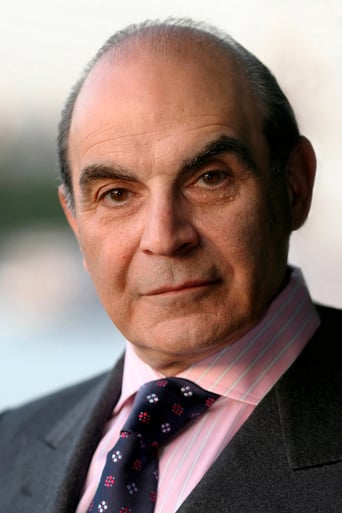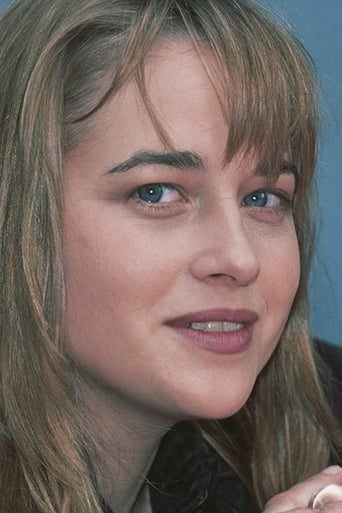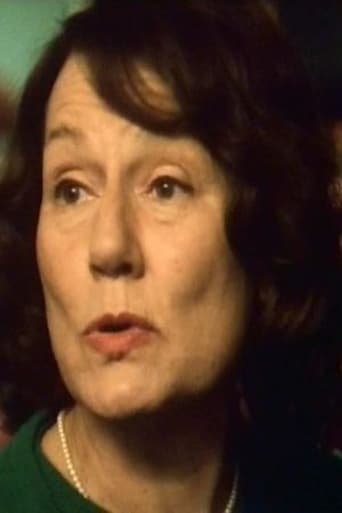Stevecorp
Don't listen to the negative reviews
Glucedee
It's hard to see any effort in the film. There's no comedy to speak of, no real drama and, worst of all.
Fairaher
The film makes a home in your brain and the only cure is to see it again.
StyleSk8r
At first rather annoying in its heavy emphasis on reenactments, this movie ultimately proves fascinating, simply because the complicated, highly dramatic tale it tells still almost defies belief.
anbudmor
Everything about this episode fits in well the the series generally. It is very well produced and acted, and generally enjoyable to watch.The problem with the episode lies in the fact that the culprit decides to leave the most inculpatory pieces of evidence at the scene of the crime. The culprit broke into a locked room where the victim had died to retrieve a letter that proves his guilt. When he hears Poirot and some others coming to the room he decides to tear up the letter in 3- strips, crush them lengthwise and leave them with some other pieces of crushed paper in a vase on the mantelpiece. He then escapes through a second door before Poirot et al. arrive.Why the hell didn't he just take the letter? What he should have done is so obvious that it spoils the episode. Fortunately this information is only revealed to the audience at the end of the show, so one gets to enjoy most of the episode before the incredible action of the perpetrator is revealed.
sanddragon939
The Mysterious Affair at Styles, published in 1920, is a historic novel in 2 ways: It launched the literary career of the 'Queen of Crime'-Agatha Christie and it introduced to the world the greatest fictional detective after the legendary Sherlock Holmes, Hercule Poirot. Beyond its historical significance and the fact that it was obviously well-written with a well-constructed plot, the novel is not really considered remarkable when you stack it up against some of Christie's far superior and far more famous works published over the next several decades (The Murder of Roger Ackroyd, Murder on the Orient Express, Death on the Nile, A Murder is Announced, And Then There Were None stand out as some exceptional works), but nevertheless, it certainly deserved an adaptation of some sort which is precisely what Granada did for the centenary of Christie's birth year...STYLES tells the story of how the Belgian sleuth, Hercule Poirot(David Suchet), who is a refugee from his native land during the First World War, ends up being invited by his old English friend, Arthur Hastings (Hugh Fraser) to investigate the murder of a wealthy old woman, Mrs Inglethorp, who died under mysterious circumstances in her country house, Styles Court, in the middle of the night. Poirot puts his detective skills to good use, investigating the scene of the crime, interviewing suspects and witnesses, collecting evidence and ultimately using the little 'grey cells' of the brain to discover the hidden truths of the matter. There are certainly no shortage of suspects in this case: There is Mrs. Inglethorps eldest son to consider, not to mention his wife and younger brother; there is her protégée and of course her much younger second husband who is hated by the rest of the family. Clues are in abundance as well: a smashed coffee cup, a glass of cocoa, a burnt document, a piece of green thread... The differences between STYLES and other Poirot adaptations which Suchet acted in become apparent-there is the setting to consider; Poirot is no longer (or rather, hasn't yet reached) the Art Deco settings of 1930's London; his reputation is briefly hinted at but he still isn't considered the greatest and most famous detective of Europe; Hastings too is just getting used to the idea of playing the slow sidekick to a great mind. There are also certain differences derived from the fact that this is Christie's first novel, like the abundance of clues and tangible evidence, the vast number of red herrings (later Christie stories would have more subtle psychological elements), the excessive stereotyping of the characters etc. But all this shouldn't spoil your enjoyment of a well-directed and acted TV movie. A must watch for all Christie and Poirot fans!
gridoon2018
Set in 1917 and based on Agatha Christie's first book, "The Mysterious Affair at Styles" is sort of a prequel to the regular Poirot series (in fact, it reminded me somewhat of the recent Casino Royale - right down to the absence of the classic opening credits and the gradual introduction of the familiar music theme - only the timeline here makes much more sense). Having met before in Belgium, Hercule Poirot and Captain Hastings run across each other again in the English country, where they have to solve a perplexing crime - the poisoning of the owner of the huge manor where Hastings was staying as a guest. This is also the first time Hastings meets Inspector Japp (Poirot had known him from before). The production is exceptional (apparently going 2 decades back from their usual timeline was no problem for the cast and crew), and the story will absorb and surprise you. Many little details and clues are well-thought-out, but (and here we are going into "spoilers" territory) an illogical central contrivance is hard to ignore. Simply put, everything connected with "the letter" that the killer writes and that incriminates him/her is complete bull: why doesn't the killer TAKE THE LETTER WITH HIM instead of ripping it to (only 3) pieces and leaving it behind? Why doesn't he come back to get it at a later date, even if he has to break into a locked room? Why does he write the letter in the first place, clearly naming his accomplice? Why does he leave it locked in a place for which his target also has a key? And finally, why does the target, after having read the letter, allow herself to be poisoned in exactly the way described in it? Everything about this "letter" reveals this as Agatha Christie's beginner's work, although as I said in all other respects her story is well-thought-out, intriguing and surprising. (***)
pawebster
A picturesque version of 1917 in England is beautifully evoked -- lovely scenery, vintage cars, perfect costumes. Poirot and Hastings are good and the story is absorbing, at least at first. You need to be very wide awake, however, to keep careful track of the characters and events. Agatha Christie herself commented (I think in her autobiography) that she had perhaps overloaded this, her first book, with clues. In the book, you have time to take all this in and can look back if necessary. This TV version has to cram it in at fairly high speed. This - along with the technical nature of the poisoning - means that the average viewer has very little chance of working out how the crime was done. Another problem is that there are quite a lot of characters, some of whom get very little screen time. It was a commendable act of piety to make this film for the centenary of Agatha Christie's birth, but perhaps the book is not really suitable for dramatization.







